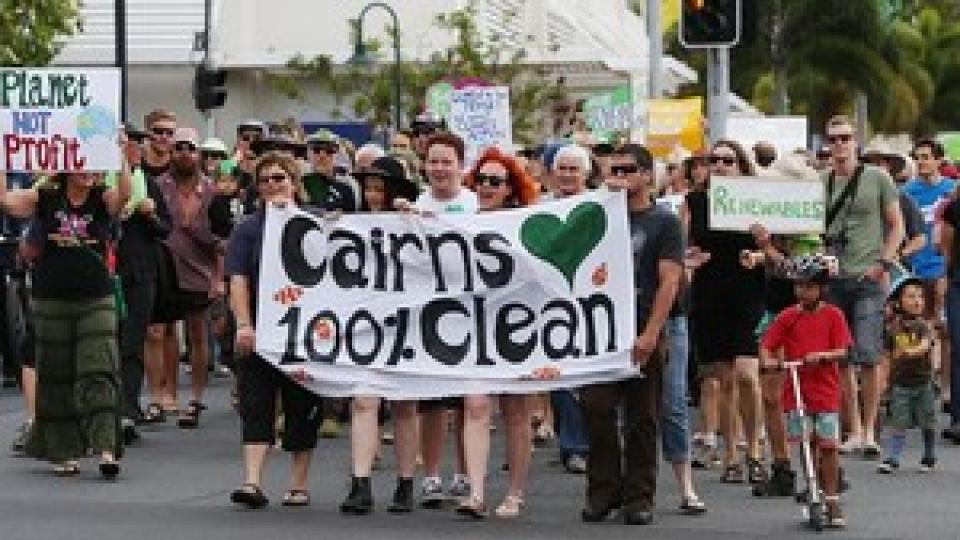G20 comes to town: People's movement responds

Brisbane is almost in lockdown as preparations get under way for the G20 Summit over November 15 and 16.
Road closures began a week before world leaders and their media lackeys were due to arrive. Manholes and utility service grates in footpaths in the CBD and around the G20 venue in South Brisbane have been sealed as a precaution against sabotage.
Car searches have begun in restricted areas and the police presence increased from the beginning of November. Inner-city bus stops have been plastered with signs warning residents of major disruption to services from two days before the summit. Black Hawk helicopters noisily circle overhead daily. The Courier-Mail has run a fear campaign warning residents of “Toronto-style” planned violence by groups protesting at the G20.
Official advice is to leave town, stay at home, plan ahead, expect delays and use public transport. A public holiday has been declared for the Friday before the G20. Trains and ferries will operate on public holiday timetables and be diverted around the CBD and the main G20 sites. It is suggested that walking or cycling is the best option.
The G20 is a talkfest of big economies: Argentina, Australia, Brazil, Britain, Canada, China, France, Germany, India, Indonesia, Italy, Japan, Republic of Korea, Mexico, Russian Federation, Saudi Arabia, South Africa, Turkey, the United States and the European Union.
Leaders from Mauritania, Myanmar, New Zealand, Senegal, Singapore, and Spain are also invited. Key organisations include representatives from the United Nations, International Monetary Fund, World Bank, World Trade Organization, International Labour Organization, Organisation for Economic Cooperation, and Development and Financial Stability Board.
Collectively, the G20 economies make up about 85% of the gross world product, 80% of world trade, 80% of global greenhouse emissions and two-thirds of the world population. Up to 4000 delegates and 2500 media representatives are expected to attend. Thousands of police and military personnel are also tied up with the G20 gabfest.
The G20 has an economic pro-growth agenda enshrining free trade; deregulation of markets and labour; and free flow of capital, services, goods and labour between countries.
Australia tried to exclude climate change from the agenda. But criticism from some member countries such as the US and France, and the recent report of the Intergovernmental Panel on Climate Change, put pressure on Australia to include the issue under the heading of energy efficiency.
A counter to the G20 has been in preparation for more than a year. The “Decolonisation Before Profit Program” will begin on November 8 with a rally and march to Musgrave Park, where a camp will be established for the week-long program. It will include daily rallies, workshops, yarning circles and cultural activities.
A rally and corroboree will mark deaths in custody on November 14.
A Global First Nations Conference will be held concurrently with the G20 meeting. While the 20 richest governments discuss how to destroy and enslave the world, First Nations will be discussing how to save the world and its people. Both days will also feature a Decolonisation Before Profit rally and march past the G20 meeting.
A coalition of activist groups under the umbrella BrisCAN-G20 has planned a G20 People’s Summit and a People’s Convergence on November 15. It is an opportunity to draw together activists from an array of social movements putting forward an alternative to the G20’s agenda of free trade and privatisation.
The People’s Summit has a vision of a world with ecological sustainability and social justice at its core, proclaiming “another world is possible”.
It will be a three-day program of symposia, workshops, films and public meetings. It aims to bring together local and international activists to collaborate on broad themes: growth, sustainability, environment, climate change, dispossession and decolonisation, civil liberties, workers’ rights, women’s rights, organising for social transformation and alternatives to free trade.
The summit will conclude with a public meeting, “Sovereignty, Sustainability, Society: A New Agenda for the 21st Century”. It will also join in the deaths in custody rally and march on November 14.
A parallel action in the lead up to G20, “Walking Borders - Art Activism in support of refugee and asylum seekers”, will entail walking the borders of the restricted and exclusion zones and marking them with paper boats. Boats will be launched in a river flotilla accompanied by choirs on November 15, to coincide with the People’s Convergence.
[For more information, visit Briscan.]